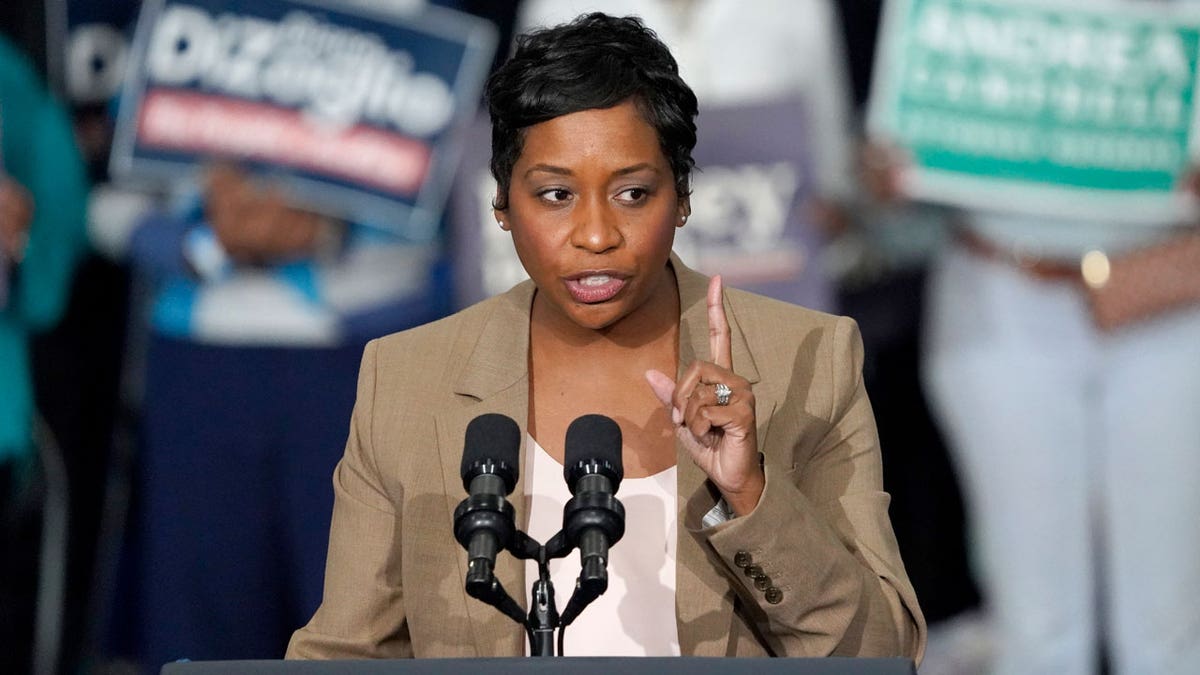Fox News Flash top headlines for May 16
Fox News Flash top headlines are here. Check out what's clicking on Foxnews.com.
The Massachusetts attorney general’s office is investigating possible racial bias by the Boston Police Department’s gang unit and its associated gang member database, which has been criticized in the past for disproportionately tracking young Black and Latino men.
The investigation into what is formally known as the Youth Violence Strike Force began last summer, Attorney General Andrea Campbell’s office said in a statement released Monday.
"Our Civil Rights Division is reviewing the Youth Violence Strike Force and its Gang Assessment Database based on allegations that, between 2018 and the present, there may have been a pattern or practice of racially biased policing," the statement said.
Boston police said in a statement that the department is fully cooperating with the investigation.
While police defend it as a critical tool for fighting violent crime, others have called the database flawed and sought to have it abolished. Gang databases in other jurisdictions have also come under scrutiny, for example in Chicago, where a 2019 report found the city's database rife with errors.
The American Civil Liberties Union of Massachusetts sued in 2018 to get more information about Boston's database. It found then that of the nearly 5,000 people listed, 66% were Black and 24% were Latino.

Democratic Massachusetts Attorney General Andrea Campbell's office is investigating alleged racial bias by the Boston Police Department's gang taskforce. (AP Photo/Mary Schwalm, File)
Simply being seen wearing the wrong clothing or having contact with the wrong person can land someone on the list, civil libertarians have said.
"The database overwhelmingly targets Black and Hispanic young people, who have been labeled as gang members for little more than wearing popular brands or even becoming a victim of gang violence," Carol Rose, executive director of the ACLU of Massachusetts, said in a statement Tuesday.
The database also came under fire last year when a panel of judges for the 1st U.S. Circuit Court of Appeals in Boston ruled in favor of a Salvadoran national who was facing deportation based in part on his inclusion on the list as a "verified" member of the violent MS-13 gang.
The justices cited "flaws in that database, including its reliance on an erratic point system built on unsubstantiated inferences."
The Salvadoran man maintained that police wrongly implicated him as a gang member and he had actually been persecuted by MS-13 due to his evangelical Christian faith.
The police department in 2021 changed how it assesses people for possible inclusion on the list, and it was down to about 3,500 names that year.
The Massachusetts attorney general's office usually does not discuss ongoing investigations but went public because another unnamed party has released information about the review. The investigation has not yet made any findings or reached any conclusions, and should it find any violations, the office will engage with the police department on reforms, the office said.
CLICK HERE TO GET THE FOX NEWS APP
Campbell was sworn in as attorney general in January and ran on a campaign platform that included police reform. She was previously a Boston city councilor and mayoral candidate.












































